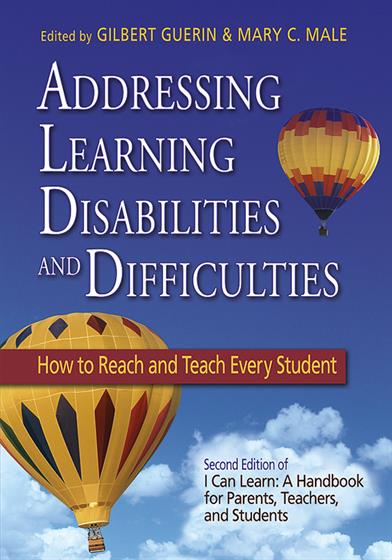Hands-on, Practical Guidance for Educators
From math,
literacy, science, equity, multilingual learners, and SEL, to assessment, school counseling,
and education leadership, our books are research-based and authored by experts
on topics most relevant to what educators are facing today.

Addressing Learning Disabilities and Difficulties
How to Reach and Teach Every Student
By:
Gilbert Guerin, Mary Male
Help children with learning difficulties or learning disabilities excel in the general education classroom!
Including updates from NCLB and IDEA 2004, this revised edition of I Can Learn offers best practices and policies that enable students with learning disabilities and difficulties to not only participate but excel in the general education classroom. Readers will discover:
- Characteristics of specific learning and performance difficulties and disabilities
- Strategies to improve learning skills such as listening comprehension, mathematical reasoning, and reading word recognition
- Strategies to enhance spelling, verbal and written expression, and appropriate social behavior skills
- Information about the referral process and determination of eligibility for special services
Product Details
- Grade Level: PreK-12
- ISBN: 9781412925624
- Published By: Corwin
- Year: 2005
- Page Count: 184
- Publication date: November 09, 2005
Review Copies
This book is not available as a review copy.


